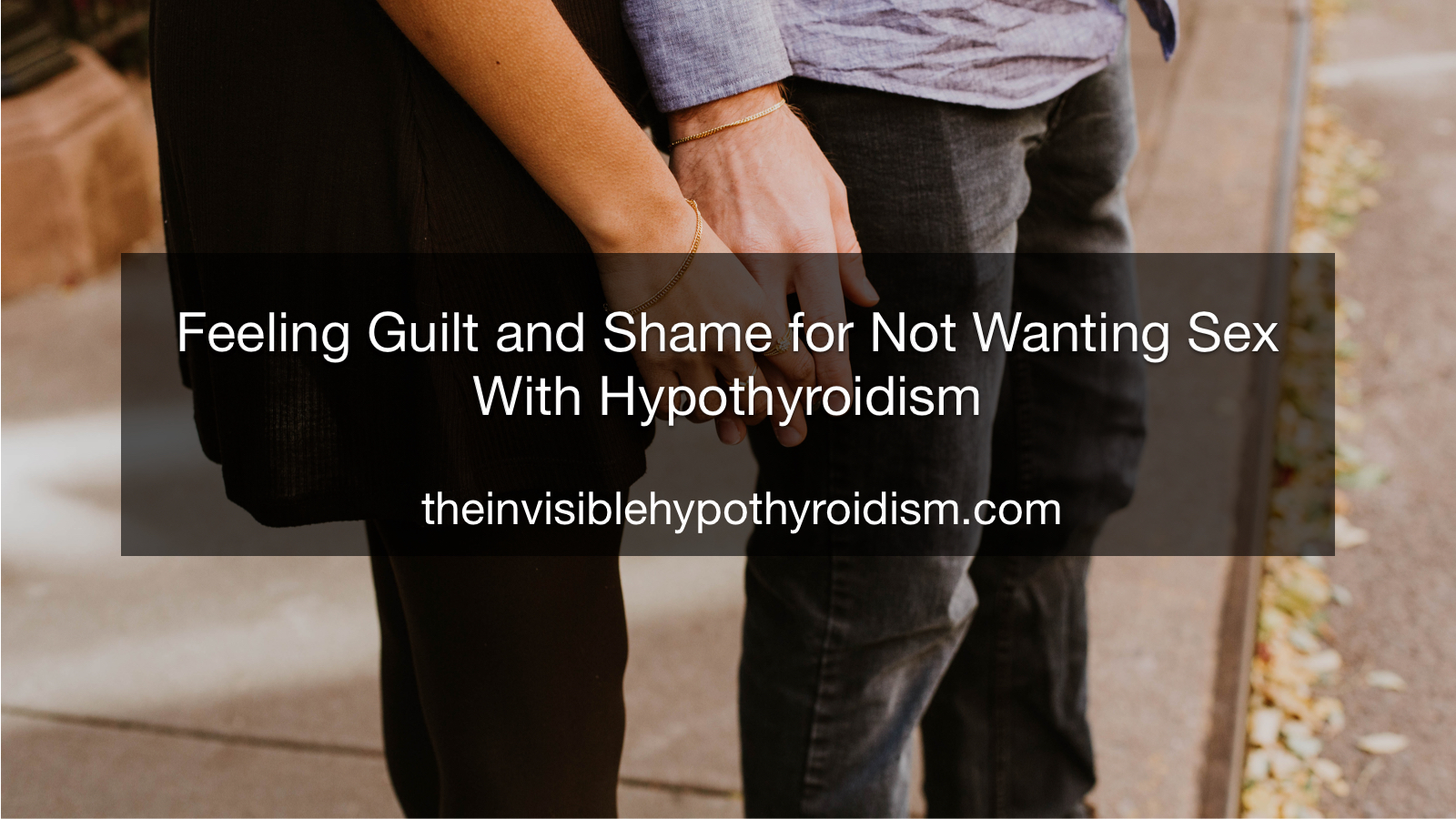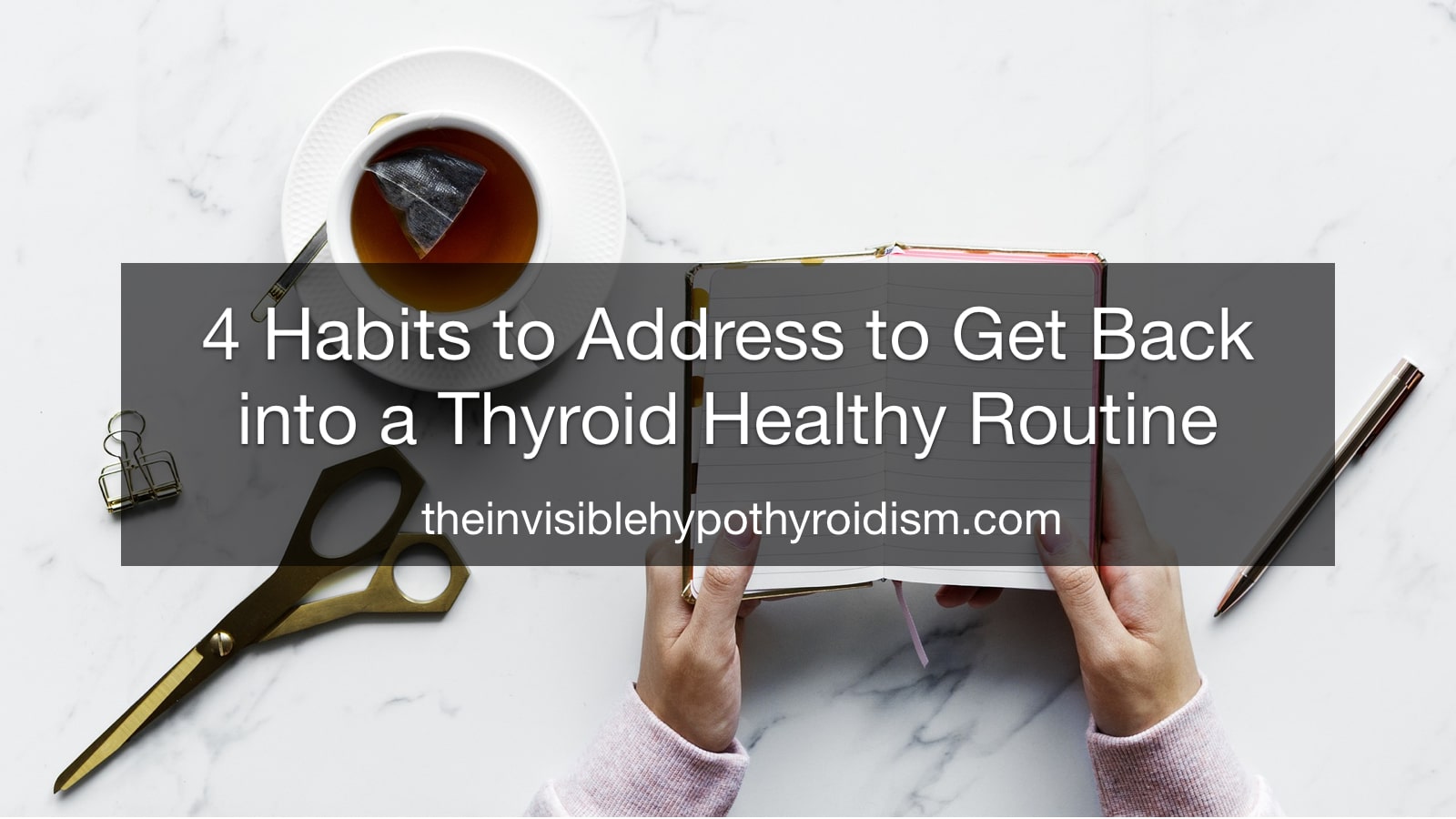Although losing your desire for sex (libido) is a common symptom of hypothyroidism in both men and women, it is often an embarrassing topic to talk about and as a result, many do not.
Sex and intimacy are key components of many healthy relationships, so how do you manage the guilt or shame of not wanting to engage in that part of your relationship?
A Loss Of Libido
The thyroid gland is responsible for producing hormones that are needed for every cell and function in our body. They’re needed for regulating metabolism, heart rate, temperature and sex drive.
Thyroid hormone is vital in the functioning of both the ovaries and testes, whereby not enough available T3 can cause your sex drive to disappear. Thyroid disease can also cause people to feel low in mood, irritable, overly-emotional, fatigued beyond words and achy. Not feeling up to sex when you feel so unwell is understandable.
Here is an analogy taken from the book: You, Me and Hypothyroidism: When Someone You Love Has Hypothyroidism
Imagine someone has cooked you your favourite meal. It has everything you could possibly imagine. It’s perfect; the best sirloin steak, the best thin crust pizza, your favourite curry. It’s got everything, every possible accompaniment, every side order and your favourite drink to wash it all down with. Except, you’re not hungry because you feel sick. You’d love to demolish the entire thing, but can’t. It doesn’t appeal to you at all. No matter how much you’d like to eat it, you have no appetite and feel so ill. That is what having a low libido can feel like. It’s not a case of desire, it’s a case of situation. When a chronic illness can make you feel ill everyday, sex may not be the top of your priorities.
Hypothyroidism also has the tendency to change our appearance, with weight fluctuations, skin changes – such as acne and eczema for example, hair loss and more. We may lose some of our confidence if we don’t feel as attractive or as if we’re in our own skin, but know that a sexual connection usually goes much deeper than appearance alone.
I have also covered how hypothyroidism can impact dating, here.
Be Kind To Yourself
Understand your thyroid condition. You’re ill. It’s normal for your body to not prioritise sex when it is struggling. This is not your fault. Your body is likely thinking about survival and what is really important to keep you alive and functioning.
Try to avoid making comparisons to when you perhaps had a higher sex drive or enjoyed sex. Life takes us through many periods of change and while your body is recovering and hopefully working towards a better level of health, be kind to it.
Staying Intimate With a Lack of Sex
How do you stay intimate with a lack of sex? How do you navigate through a dry spell in the bedroom?
Talk to your partner about how you feel and express any feelings of embarrassment, shame, guilt or low self esteem. They usually recognise this absence in your relationship too, so opening up and talking ensures that you can clear the air between you. However, you should not be made to feel guilty or as if you ‘just have to have sex anyway’ to keep them happy. Your consent is always important and you should never feel pressured in to sexual acts.
There are other ways to build intimacy too. Back/foot massages, secluded walks, date nights, making a point of reserving times just for you two (without phones!) and talking over dinner instead of staring at your phone or sitting in front of the TV, can all help you to feel closer to one another, and may even build intimacy in the way that it can naturally lead on to more of a desire to be sexually intimate together.
Reconnect with your partner, doing the things you often did before hypothyroidism appeared and try to avoid getting frustrated about the changes in the bedroom – it doesn’t help. You’ll find your way back to regular sexual intimacy with a strengthened connection, as well as patience in addressing your physical health too.
Testing
When it comes to making sure your hypothyroidism is well-managed and not impacting your sex life for example, it is crucial that you have a full thyroid panel tested, to include TSH, Free T4 and that all important Free T3. A lot of doctors will not test past TSH, but TSH alone is not accurate and can leave you under-treated.
A UK thyroid function test can be found here, and an international one here.
It is also worth checking sex hormone levels – namely oestrogen, progesterone and testosterone – as well as adrenal function, since abnormal results in these can also cause a lack of libido, but also irregular periods, PMS and tension and irritability with your partner (perhaps it even annoys you when they suggest having sex).
If your doctor won’t check your adrenals, you can very simply order testing yourself in the UK here and US here.
If your doctor is a conventional medicine doctor, meaning on the NHS in the UK for example, you may find that their ability to order these more comprehensive tests and interpret them is limited, so seeking out a functional practitioner or integrative medicine practitioner, who are usually more experienced in the body’s delicate hormonal balances, may be of more help to you. It was for me.
Going Forward
The good news is, that when low thyroid hormone levels are corrected, as well as any sex hormone imbalances or adrenal dysfunction, the result is often a return to all bodily functions and processes, including your libido.
I understand that it can be difficult when you’re in a relationship with someone who wants to have that level of intimacy with you, but honestly, you’re just too tired to even think about it and when undressing even seems like too much effort, it can strain the relationship. I can understand the stress of someone who wants to show their partner how much they mean to them but their partner just isn’t interested. I understand the concern this causes and worries it generates. It’s only natural.
But talk. Show them this article and the book mentioned below. Explain that it is no ones fault, but, if anything, you’ve got to work together. And be patient.
Have you experienced a change in your libido with hypothyroidism?
You can click on the hyperlinks in the above post to learn more and see references to information given.

There is the book You, Me and Hypothyroidism: When Someone You Love Has Hypothyroidism which is for those who know someone with hypothyroidism, such as a spouse or partner. More information on libido and relationships, as well as many other topics, can be found in the full book.







No Comments